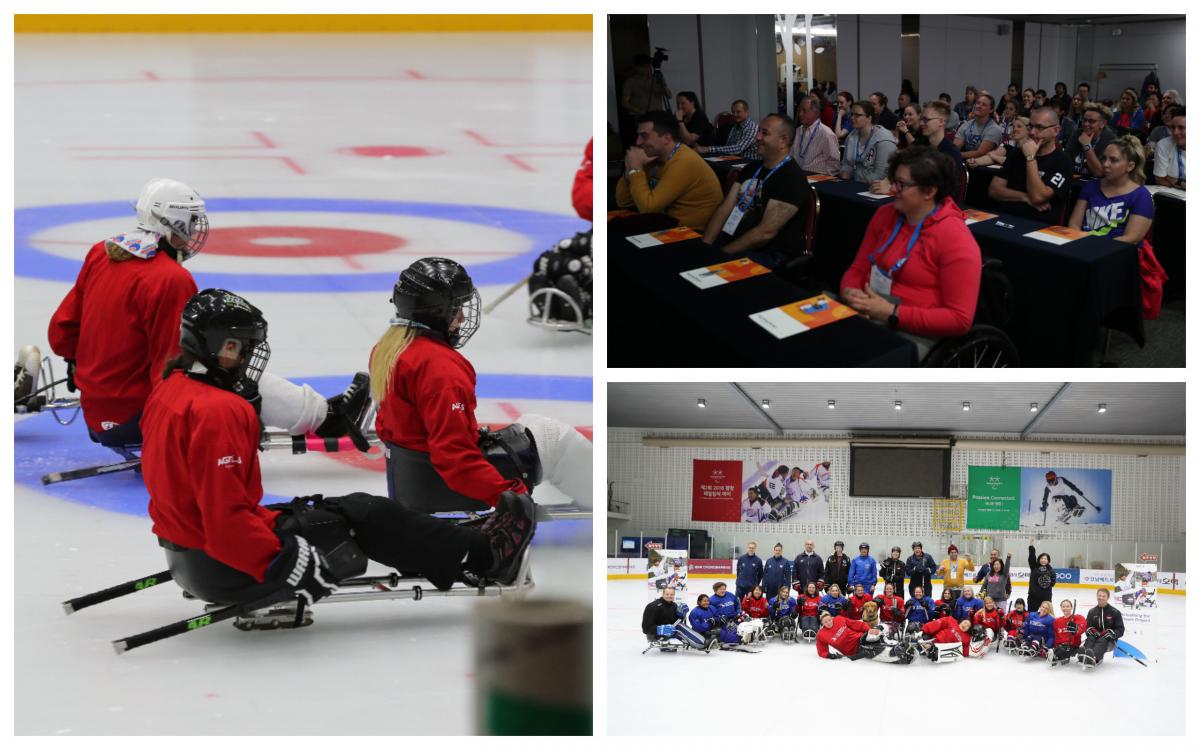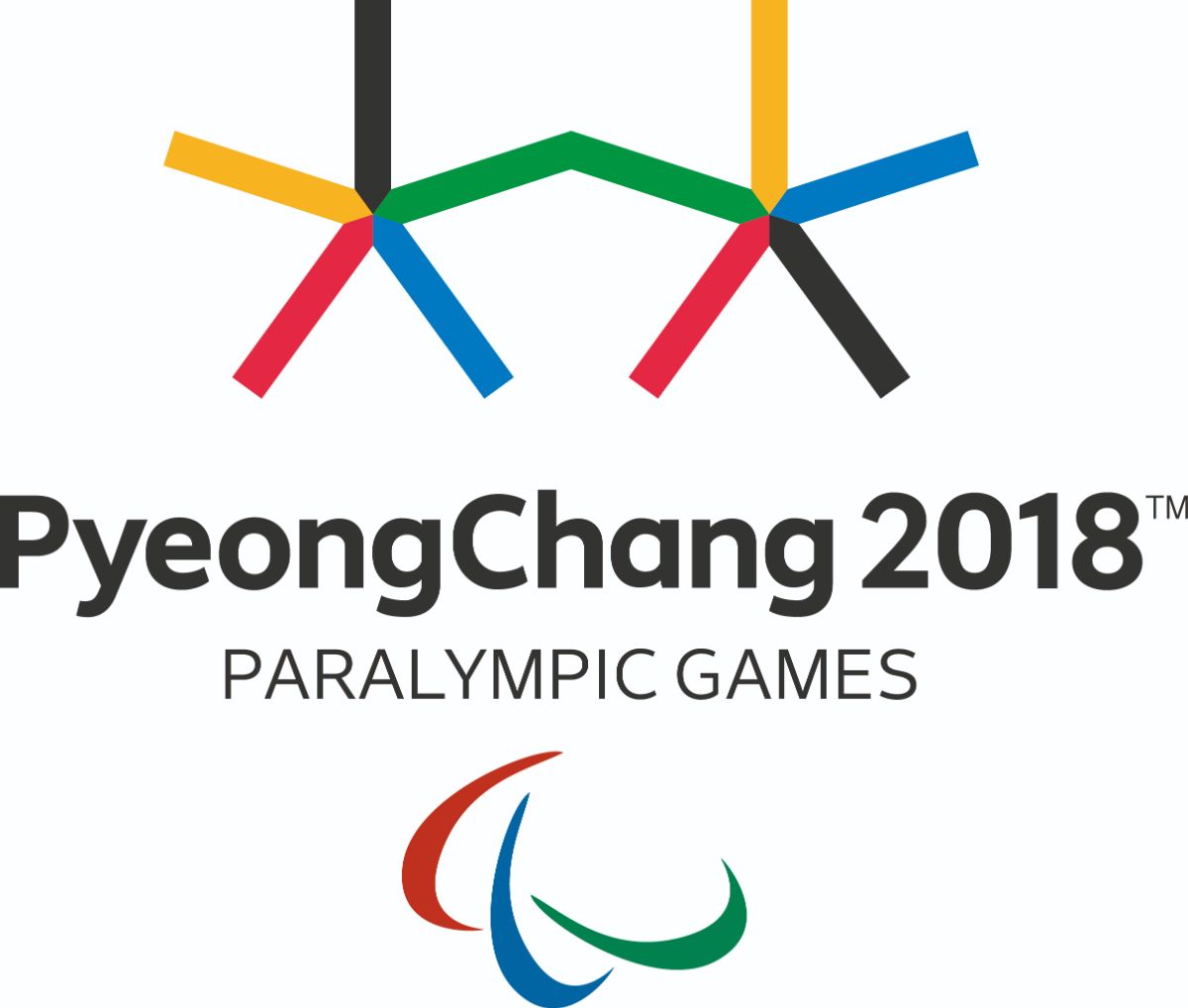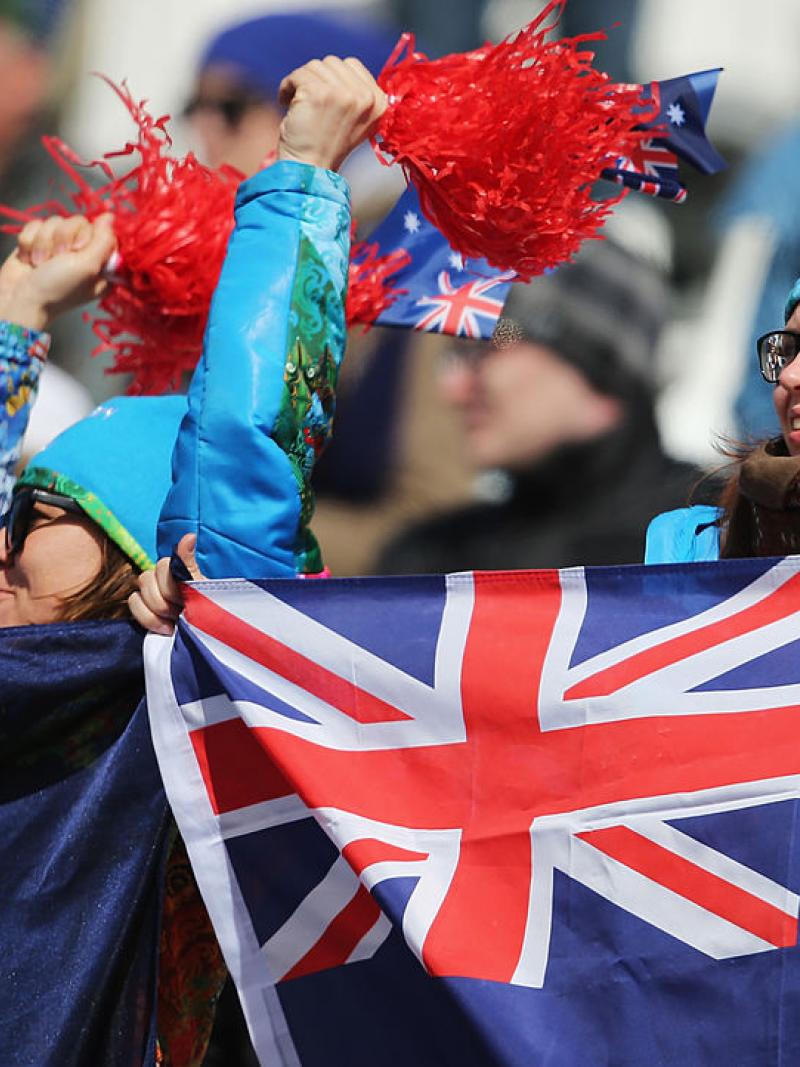Agitos Foundation and PyeongChang 2018 developing winter Para sports
Para Nordic coaching course and first women’s Para ice hockey training camp underway in South Korea 13 Oct 2017
The first women's Para ice hockey development camp is taking place in South Korea
“I’d like to thank PyeongChang 2018 and the Agitos Foundation for helping us promote Women’s Para ice hockey. This is definitely one of the best camps I’ve ever been to, and it is definitely going to put us in the right direction.”
More than 40 athletes and coaches from 21 countries are taking part in a Paralympic Winter Sports Development Workshop, held from12-14 October in Chuncheon, South Korea.
The workshop includes Para cross country and Para biathlon coaching courses, and the first women’s Para ice hockey training camp.
Both events are part of the ‘Actualising the Dream’ project delivered by the Agitos Foundation in partnership with the IPC and PyeongChang 2018.
The women’s Para ice hockey camp involves 30 athletes and coaches from Armenia, Australia, Canada, Croatia, Finland, France, Great Britain, Japan, Korea, Netherlands, Norway, Sweden and USA.
The ultimate goal is to meet one of the strategic priorities in Para ice hockey, which is to increase the number of women playing the sport.
Tara Chisholm, head coach of Canada’s National Women’s Para Ice Hockey team and lead coach of the training camp, said: “It has been amazing. These women are so excited to come and learn a new sport and get more involved in a winter Paralympic sport.
“Our goal with women’s Para ice hockey is to bring it to the Paralympic Games. Having a camp like this is helping to introduce other countries to the sport and teach them, so hopefully one day we can have enough countries to play in the Paralympic Games.”
Erica Mitchell, captain of the USA women’s Para ice hockey team, is one of the pioneers of the sport in the country and has been playing it since she was 10 years old.
“In 2007, I had tried out to the men’s USA team and find out I could not play at that level because I was a female. We had nowhere to go so we ended up making a women’s USA team. Now we are here having these workshops and hopefully we could be in the Paralympics soon.
“I’d like to thank PyeongChang 2018 and the Agitos Foundation for helping us promote Women’s Para ice hockey. This is definitely one of the best camps I’ve ever been to, and it is definitely going to put us in the right direction.”
The next step
During the training camp, Erica shared her experience with athletes and coaches from countries where the sport still has a long way to go, such as Armenia.
This opportunity comes at a great time for the country, as they have recently been chosen as one of four nations to receive Para ice hockey equipment as part of the ‘Actualising the Dream’ project.
Karen Abrahamyan, an all-around volunteer at NPC Armenia, said: “We don’t have any Para ice hockey athletes yet, but we are planning on having the Para basketball team to play the sport as well. They are the most flexible in training possibilities and are keen on taking that step.
“We are loving the camp we very happy with all the new insights and information we are receiving.”
The same feeling is shared by the 14 participants of the Para biathlon and Para cross country coaching course, who come from Argentina, Armenia, Australia, Brazil, Chile, Croatia, Georgia, Iran, Italy, New Zealand and Serbia.
Jose Miguel Ormeno, Para Nordic coach from Chile, said: “This is a great opportunity for us to start Para Nordic disciplines in Chile. We have no or very little experience, so we are very happy to pursue in this challenge, especially with our neighbours Argentina and Brazil who also are in this workshop.”
The ‘Actualising the Dream’ project was launched in July 2014 by the PyeongChang Organising Committee for the 2018 Olympic and Paralympic Winter Games, aiming to develop Paralympic winter sports and athletes and raise awareness of issues regarding people with an impairment.
The project was part of PyeongChang’s bid for the 2018 Paralympic Winter Games and is a first for any Organising Committee.









